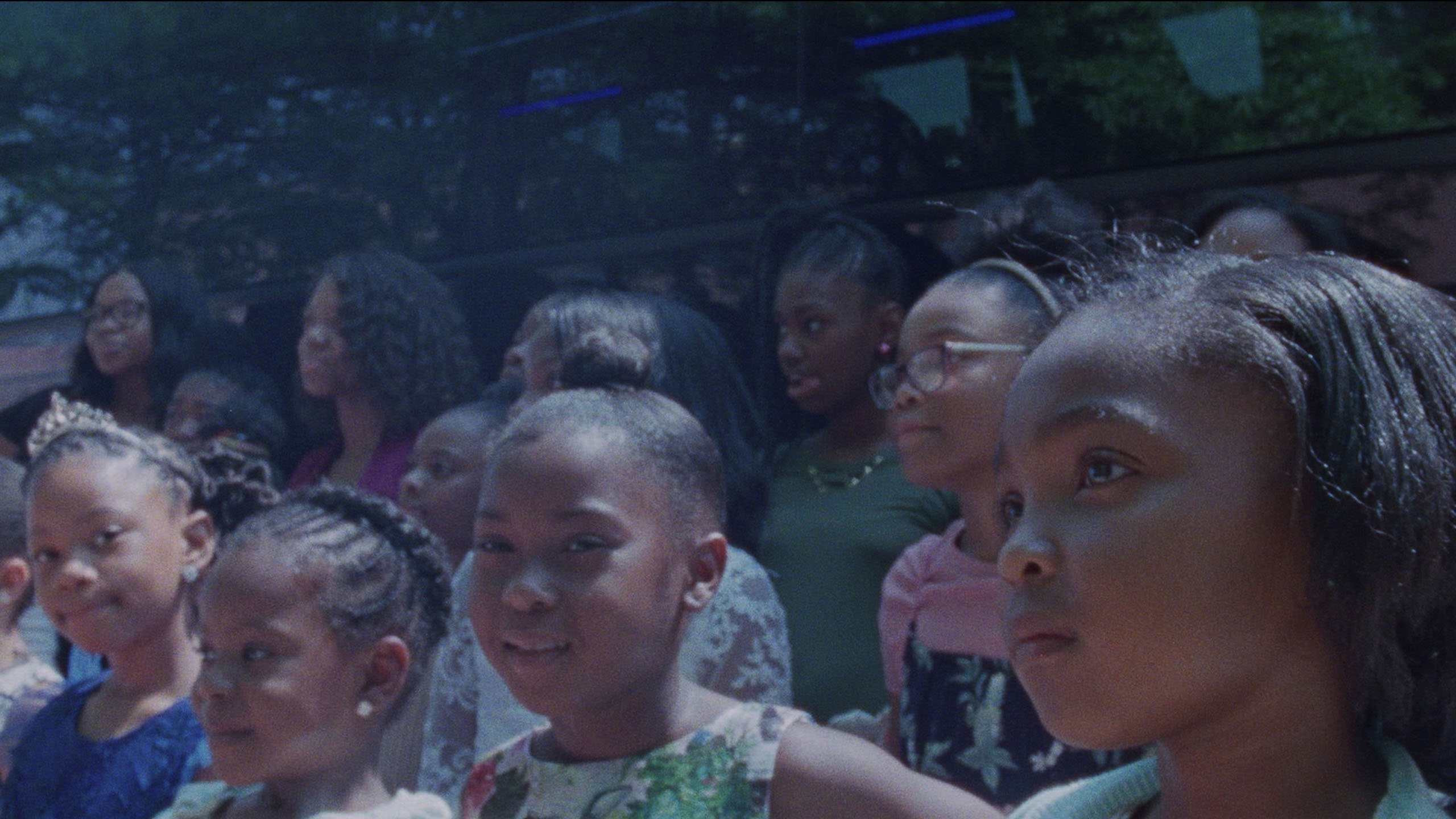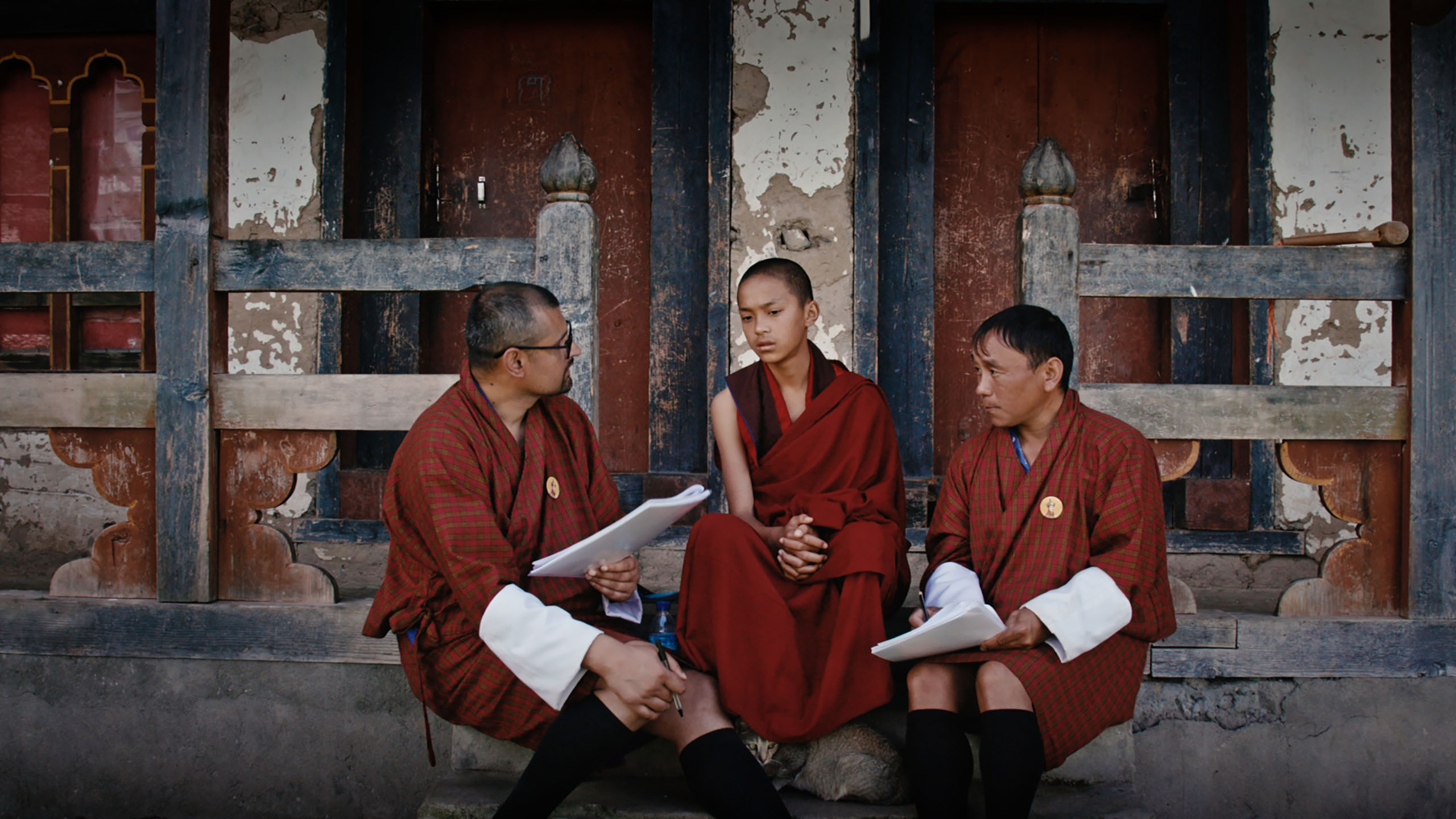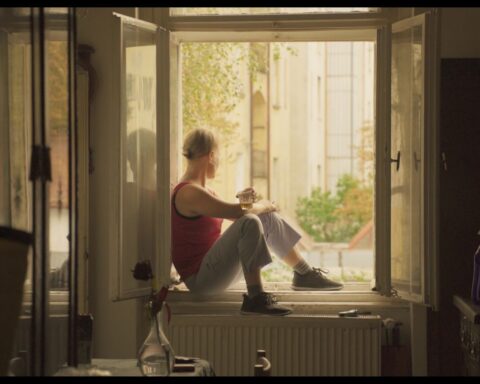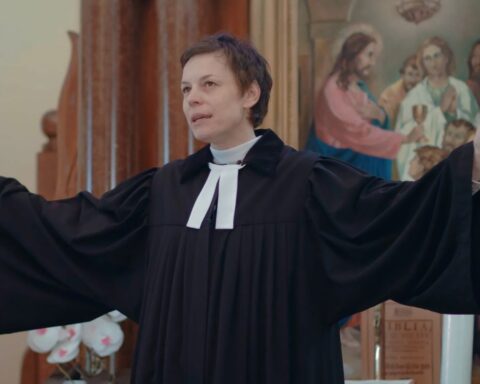Daughters
(USA, 107 min.)
Dir. Natalie Rae and Angela Patton
Programme: U.S. Documentary Competition (World Premiere)
Plenty of films have tackled the way that incarceration decimates families, and how small acts of humanity can, in some instances, both reduce recidivism and create lasting changes in both the convicted and those who surround them. There are projects like last year’s TIFF treasure Sing Sing, which semi-fictionalized how theatre programs opened up individuals to be able to express themselves in a new way, while the Sundance classic (and Oscar nominated) The Farm: Life Inside Angola Prison showed off some of the more harrowing aspects of life behind bars.
Daughters, directed with exquisite touch by Natalie Rae and Angela Patton, details a programme that has connected young daughters with their fathers for over a decade. Seen cynically, the storyline of the Daddy Daughter Dance could seem manipulative to the point of being cloying. However, thanks to the impactful storylines of all involved and the bravura storytelling from the filmmakers, Daughters is emotionally rich and immensely powerful.
Without trying to come across as crass, perhaps the most satisfying realization from a cinematic perspective is that I only realised after the screening that Patton is the woman behind the event. The film easily could have focussed on her, illustrating her Ted talks about initiating the dance, or her work as an activist with Girls for a Change and Camp Diva, which she founded.
That would be a worthy film, of course, but what’s fascinating, in retrospect, is that when Patton does appear in the film, either when entering into dialogue with the mothers of the young girls who are headed to the dance, or even engaging with the men in prison, she’s one character among many. She radiates empathy and capability, but never overwhelms the stories of those we’re actually following. It’s a rare thing to experience, and while it’s certainly a meta-textual triumph of the film, it’s evident just how assuredly the directors have crafted Daughter to avoid the obvious pitfalls of having one half of the duo in the story.
We witness that the dance is but the culmination of weeks of work from all manner of participants. For the fathers, they’re required to take place in sessions that land somewhere between group therapy and addiction confessional. It’s a “Parents Anonymous”-like vibe where they’re freed from overtly pedagogical or even psychiatric guidance. A sense of bonding and community is instead expressed by the shared desire to reconnect with their family members.
What underscores the proceedings is the direct result of prison policies, where any “touch time” is strictly forbidden. Even video calls within the institution are highly restricted and external communication is limited by the financial strain of messaging tokens. Without needing to intellectually delve into deeper levels of Benthamian discourse about crime and punishment, the film manages in these subtle yet revelatory ways to teach audiences about what something as simple as human touch between parent and child means within this context.
Daughters, wisely, also resists notions of innocence or guilt, and neither revels in nor tries to underplay the seriousness of the events that contributed to these men being behind bars, many not for the first time. The cycles of incarceration mirror the generational trauma, of course, but even this is treated with a sophisticated eye beyond the jargon or obvious way of articulation. These are complex circumstances involving human beings, with all that messiness and mayhem implied, where a man named Murdock lets lay where he got his nickname, while we can still wish him to have a moment of connection with his daughter as she fancies herself up for a dance at the gym.
We witness young, precocious girls still bubbling with enthusiasm. They’re not yet dulled to the number of years they’ll be apart from their dads. Adolescent girls, however, appear with hard eyes, their jaws locked, made cautious by years of broken promises. There are birthday parties filled with laughter and joy, and one can’t hope but notice the total lack of any adult males around the celebrations. The camera captures it all, managing to portray such an event as more than a simple, joyful reunion. It brings forth the true complexity of these individual relationships that have undergone significant damage, for some beyond any rational hope of repair.
And yet, almost implausibly, we are warmed as toughened men teach one another to tie their ties, many of whom never went to prom and needed a suit for the occasion. There are girls in pink sequined dresses with their hair blown out, while others simply want an answer, any answer, in the short time they have to reconnect with someone that they share blood with whom but have not shared a significant part of their lives.
Small moments of joy are fleeting, of course, and the sensation of needing to harden back up to don the orange jumpsuit is palpable. It’s the same for the young women who leave knowing what’s being staying behind. All such dances are inevitably fantasies, with brief moments in which the incarcerated pretend that they’re free, and the young girls pretend that they’re in a “normal” relationship with their fathers. As Daughters shows, the effect is deeply ambivalent, a stark reminder of how the biggest currency of prison life is time. For a few hours, familial intimacy takes the place of a years-long sentence and, for some, the change is heartbreaking. For others, it’s an impetus to hold onto that feeling long after the songs have stopped spinning.
There are significant questions that are raised throughout the film in ways both subtle and overt, yet in the best of ways that Daughters allows these stories to simply settle as they do. The dance in question took place back in 2019, meaning we’re granted a few years’ worth of change for the young girls, a huge portion of their lifetime. For some of them, the lives of their fathers remain tragically identical, freed from outside change and locked into the usual routine. For some, the dance proved a new beginning; for others, a single event that’s already faded into a past, the connection between father and daughter as fraught as ever.
Simply put, this is a stunning work of subtlety and power, one that manages to examine massive issues of race, culture, crime and relationships while remaining laser focussed on this unique, intimate setting. It’s an immensely impressive balancing act, using the singular nature of these individual stories to provide deeper, more universal insight. With a mix of journalistic sophistication and cinematically rich emotions, you’re treated to a truly exceptional work of non-fiction.
Daughters is an immense work, giving Patton and her colleagues an opportunity to showcase their efforts with the Daddy Daughter Dance in ways that are never self-aggrandizing. They aren’t sugar-coating the real challenges and obstacles, but firmly ensuring that the circumstances and the emotions of those involved are truthfully conveyed. It’s quite a difficult dance to pull it off, and in the end these filmmakers prove they have all the right moves.













